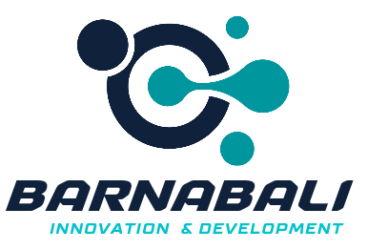Market Research and Lead Generation for Digital Technology
Market research is a critical component in the digital technology sector, serving as the foundation for informed decision-making. It involves systematically gathering, analyzing, and interpreting data related to consumer needs, market trends, and competitive landscapes. This process equips businesses with valuable insights that guide product development, marketing strategies, and overall business planning. By understanding consumer behaviors and preferences, companies can tailor their offerings to meet market demands more effectively.
For instance, a comprehensive market research initiative might include surveys, focus groups, and analysis of industry reports to identify emerging trends and consumer pain points. This data not only highlights opportunities for innovation but also helps in mitigating risks by anticipating market shifts. Competitive analysis, another crucial aspect of market research, enables businesses to benchmark their performance against industry peers and identify areas for improvement.
Lead generation is equally vital, focusing on attracting and converting potential customers into active clients. In the digital technology sector, this often involves leveraging various digital marketing channels. Content marketing, for example, is a powerful tool that provides value to potential customers through informative and engaging content, thereby establishing trust and authority. SEO strategies are employed to enhance online visibility, ensuring that the business appears prominently in search engine results.
Social media engagement is another effective technique for lead generation. By actively participating in social media platforms, businesses can reach a broader audience, foster community interactions, and drive traffic to their websites. Additionally, targeted advertising campaigns on platforms like LinkedIn and Facebook can precisely reach potential leads based on specific demographics and interests.
To illustrate the effectiveness of these strategies, consider the case of a tech startup that utilized market research to identify a gap in the cybersecurity market. By developing a product that addressed this need and using content marketing to educate potential customers about security threats, the startup successfully generated high-quality leads and achieved substantial growth.
In conclusion, market research and lead generation are indispensable tools for businesses in the digital technology sector. They not only provide the insights needed for strategic planning but also drive customer acquisition and retention, ultimately contributing to sustained business success.
Commercial & Logistics Documentation Support for Export & Import Business
In the realm of export and import business, commercial and logistics documentation plays an indispensable role. The accuracy and completeness of documents, such as commercial invoices, bills of lading, certificates of origin, and insurance documents, are paramount. These documents serve as proof of transaction, ownership, and compliance with international trade regulations.
A commercial invoice is a detailed bill provided by the exporter to the importer, listing the goods being sold and their value. It is crucial for customs clearance and acts as a record for both parties. Similarly, the bill of lading is a legally binding document issued by a carrier to acknowledge receipt of cargo for shipment. It serves multiple purposes: it is a shipment receipt, a contract of carriage, and a document of title.
Certificates of origin certify the country where the goods were manufactured and are often required by customs authorities. These certificates can impact duty rates and trade agreements. Insurance documents, on the other hand, protect against potential loss or damage during transit, ensuring financial security for the involved parties.
Accuracy and compliance in documentation are critical. Errors or omissions can lead to delays, increased costs, and legal complications. Ensuring that all documentation meets the regulatory requirements of both the exporting and importing countries is essential to smooth operations. This is where digital solutions come into play.
Digital documentation systems offer significant advantages by automating the creation, storage, and sharing of documents. These systems reduce human error, enhance data accuracy, and speed up the entire documentation process. Digital tools also facilitate real-time tracking and updates, which are vital for effective logistics management.
To manage documentation effectively, businesses should implement robust internal controls and regular audits. Training staff on the latest regulations and documentation standards can further mitigate risks. Additionally, staying informed about emerging logistics technologies, such as blockchain for secure and transparent transactions, can provide a competitive edge.
In conclusion, meticulous documentation is the backbone of successful export and import operations. Leveraging digital solutions not only ensures compliance and accuracy but also enhances overall efficiency and reliability in international trade.

